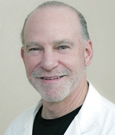City of Hope in Duarte, California, has named Steven T. Rosen, MD, as its first Provost and Chief Scientific Officer. Dr. Rosen will guide the scientific direction of the center’s medical research, treatment, and education. He will also assume directorship of the comprehensive cancer institute, with his new duties officially beginning March 1. Dr. Rosen previously served as Director of the National Cancer Institute (NCI)-designated Robert H. Lurie Comprehensive Cancer Center of Northwestern University and Director of Cancer Programs at Northwestern Memorial Hospital, Chicago, a position he held for 25 years. The ASCO Post recently spoke with Dr. Rosen about his time at Lurie and his vision for City Of Hope.
Northwestern Years
Please give the readers a snapshot of your road to Northwestern.
Actually, it was very direct. I grew up in Queens, New York, and I came to Northwestern University when I was 17 years old. I entered the 6-year honors program—after graduating college you go directly to the medical school.
After completing medical school I did my residency at Northwestern and went from there to the NCI for my fellowship. Then I returned to Northwestern, where I spent the first part of my career at the Veterans Administration Hospital doing clinical research and laboratory investigation. In 1981, I moved into a full-time position at the University.
When did you become the Director of the cancer center there?
I became the Director in 1989. The cancer center was established in 1974 with brief NCI funding, but that core grant was not refunded. In 1993, the center received an endowment from Ann and Robert H. Lurie, and in 1998, the center’s name was modified to the Lurie Cancer Center, when we received NCI-designation as one of the nation’s 41 comprehensive cancer centers.
Over the past 25 years, Lurie emerged as one of America’s outstanding cancer centers. Most recently, during a site visit from the NCI, we were asked to be the representative institution from Illinois for the National Comprehensive Cancer Network (NCCN). There were several additional core grants, and over the years, Lurie has emerged as the largest provider of cancer care, in terms of volume, in the state of Illinois. I’m very proud of having been part of Lurie’s incredible legacy, and I’m confident that my wonderful colleagues will continue to build on that legacy.
New Role at City of Hope
What prompted your decision to accept a leadership role at City of Hope, after such a rich career at Lurie?
It was a once-in-a-lifetime opportunity to be involved in a leadership role in one of the most distinguished freestanding cancer centers in America. City of Hope has enormous financial resources and talent, which gives the institution the ability to advance cancer diagnostics and therapeutics in a way that is almost unprecedented in today’s environment.
Remarkably, City of Hope continues to grow, expanding its reach into biomedicine, translational research, and genetics. So although it was difficult to leave Lurie after so many incredible years there, the timing was perfect for this particular stage in my career.
Three Main Goals
What is your vision for City of Hope?
My job is to recruit the most talented scientists and clinicians who will be able to accelerate the institution’s missions in research and therapeutics. I want to help shape the future of City of Hope’s place in advancing cancer prevention, care, and survivorship. Those are the three main goals that I have as I step into a leadership role, which of course will encompass a variety of activities and initiatives.
Of those three buckets, prevention is perhaps the most underserved, so that is something that I want to give a lot of attention to. And along with the better outcomes in survival that we’ve seen over the past few decades, learning how to better deal with the very specific needs of survivorship and quality of life after cancer is also an emerging challenge. We collaborate with numerous other institutions through the NCCN and other groups, giving City of Hope even greater reach into the cancer community.
Challenges and Adjustments
From your role as a leader in oncology, how do you see cancer care evolving in our rapidly changing health-care system?
There will always be challenges in medicine, and clearly a major concern we have as a society is to be able to continue to finance all of the remarkable scientific work that has helped give doctors the tools to ease the burden of disease on humanity. We are certainly facing difficult challenges, but I am confident that we will figure out a way to not only maintain, but to accelerate the pace of medical advances.
Speaking specifically about the oncology community, we’ve already seen major adjustments in models of care that have not resulted in a diminishment of quality. In fact, the future is bright; it’s a very exciting time in oncology. ■


